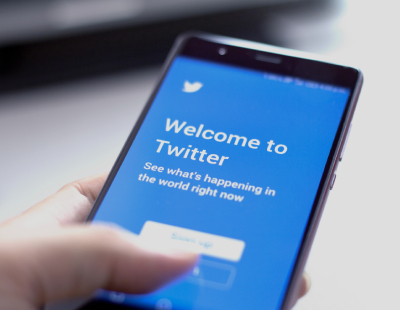I’ve been on Twitter for a decade and have 23,500 followers - a gratifying number and of those a couple of hundred are ‘blue ticks’.
For the uninitiated (there can’t be many these days) blue ticks verify the apparent fame of the person, their noteworthiness in their respective fields, and distinguishes them from bots and others who fake the accounts of the famous or well-respected.
It’s the blue ticks that are in the news right now - Twitter’s new owner, Elon Musk, is seeking to charge individuals around $100 a year for the privilege.
So what, you might say - it’s an attempt to monetise something which has, arguably, been free for far too long.
The consequence of being free is that Twitter has become, at times, a cesspit of toxicity - a sort of social media version of a modern political party, where ostensibly everyone is a member with the same cause but where in reality everyone hates everyone else.
But most of the time it’s not like that at all and Twitter being free to use has given the opportunity to many to have a voice in a debate where previously they have been excluded.
Property is no different to any other sphere.
I’ve seen Twitter debates between agents (indeed, including Phil Spencer too) over the pros and cons of homes being described in terms of square feet rather than bedrooms.
Being free has allowed campaign groups representing owners and residents in tower blocks to vent their true feelings about their post-Grenfell situation - directly able to combat the smooth-talking developers and some politicians.
And it’s allowed some outspoken ballsy individuals to say what’s really happening in the housing market - they’ve cut through the PR-speak of some agencies insisting the market is in the rudest of health when it clearly is not.
This all comes at a price of course.
When I’ve written something people didn’t agree with, a few chose to troll. It’s easy to troll on Twitter, and it’s free: individuals in a high end agency did so when they didn’t like what I wrote about a new portal some years ago, and more recently members of a renters’ group trolled me because they didn’t like an analysis of landlords’ roles in the buy to let market.
So be it. For good or for bad that’s the market price for saying what’s true rather than what’s popular.
And what has this to do with the current Elon Musk blue tick controversy?
Well in addition to revenue raising to help Twitter break even, there is speculation that payments for blue ticks will also give the tick-holders a stronger presence on the site.
In other words the algorithms of Twitter will be changed to give blue tick-holders more prominence in timelines. And therein lies the rub.
For that would automatically give a stronger voice to those who could pay the most - exactly what Twitter does not do now.
Imagine an agency or a developer or a portal buying all of its staff a blue tick, so allowing them to dominate timelines and effectively dictate social media debating? It would turn Twitter into just another PR parade, with the wealthiest having the biggest voice.
So although the world of Musk seems distant to us tweeting about the Renters Reform Bill or the Halifax house price index, there really is a connection.
By not allowing the established blue tick brigade to dictate the debate, Twitter actually holds the establishment to account by letting the little people have a say too.
Change that freedom and you turn Twitter into another form of advertising - the wealthiest tell you what they want to hear, with the algorithm stacked against anyone else answering back…
*Editor of Letting Agent Today and Landlord Today, Graham can be found tweeting about all things property at @PropertyJourn







/RishiSunak-400x310.jpg)
/Rishi%20Sunak%2003_400x310.png)
/Parliament-Night-400x310.jpg)




.png)


.png)



Join the conversation
Be the first to comment (please use the comment box below)
Please login to comment